 |
| GDP in the third quarter of 2023 reached 5.5%, the second consecutive quarter of growth for the Russian economy after a previous decline. (Source: Getty) |
World economy
Record high debt globally
The latest report from the Institute of International Finance (IIF) said that global debt increased to a record $307.4 trillion in the third quarter of 2023, while the debt-to-GDP ratio in emerging markets reached an all-time high.
In a report released on November 16, the IIF estimated that global debt will reach $310 trillion by the end of this year, an increase of more than 25% over the past five years.
Two-thirds of the increase in debt in the past quarter came from developed markets, led by the US, Japan, France and the UK. Emerging markets including China, India, Brazil and Mexico also recorded strong increases.
While the global debt-to-GDP ratio was little changed at 333%, it rose to 255% in emerging markets – 32 percentage points higher than five years ago. Russia, China, Saudi Arabia and Malaysia led the increase, while Chile, Colombia and Ghana saw the largest declines.
The IIF warned that a shift toward political populism could push debt levels even higher next year.
US economy
* According to the minutes of the two-day policy meeting (October 31-November 1) released on November 21, US Federal Reserve (Fed) officials agreed to act cautiously and only raise interest rates if progress in controlling inflation slows down.
The minutes showed that all participants agreed that the Fed's Federal Open Market Committee (FOMC) could proceed cautiously and that support for raising interest rates appeared to be waning.
The discussion turned to how long to keep interest rates in the current 5.25%-5.50% range.
* On November 17, the US Department of Commerce said that the US and China plan to negotiate further on trade issues next year.
The two sides will also hold technical discussions on strengthening trade secret protection during litigation in January 2024. In addition, the ministry also plans to work with China to promote the relationship by resuming the tourism industry leadership conference scheduled to take place in May 2024 in Xi'an, China.
Chinese Economy
* Data recently released by the Chinese Ministry of Commerce shows that in the period from January to October 2023, the country recorded 41,947 newly established foreign-invested enterprises , an increase of 32.1% over the same period last year.
However, disbursed foreign investment capital only reached 987.01 billion yuan (about 137.5 billion USD), down 9.4% over the same period last year.
By sector, the manufacturing industry attracted 283.44 billion yuan of foreign investment, up 1.9% year-on-year. By country, Canada, the United Kingdom, France, Switzerland and the Netherlands were the largest investors in China, up 110.3%, 94.6%, 90.0%, 66.1% and 33.0% respectively during the reporting period.
* On November 20, the People's Bank of China (PBoC) said that the PBoC and the Central Bank of Saudi Arabia have signed a bilateral currency swap agreement.
The PBoC confirmed that the total value of the currency swap agreement is 50 billion yuan (about 6.98 billion USD). The agreement is valid for 3 years and can be extended if both parties agree.
The currency swap agreement will help strengthen financial cooperation between the two countries, expand the use of each other's currencies, and promote bilateral trade and investment, the statement said.
European Economy
* Data released by the European Statistical Office (Eurostat) on November 17 showed that the annual inflation rate fell from 4.3% in September 2023 to 2.9% in October 2023, the lowest level since 2021.
Core inflation, which excludes energy and food prices, also fell. The annual rate fell from 4.5% in September to 4.2% in October.
* The European Commission (EC) on November 20 announced a 6-month extension to the plan allowing European Union (EU) countries to support companies affected by soaring energy prices, following the conflict in Ukraine.
The temporary measure will be extended until June 2024, allowing the 27 EU member states to provide various forms of financial support to compensate companies affected by rising electricity and gas costs.
* The German government announced on November 22 that it would postpone the final vote on next year's budget after the Federal Constitutional Court ruled that the repurposing of 60 billion euros (about 65 billion USD) allocated for the Covid-19 pandemic to green initiatives in the Climate and Transition Fund (KTF) was unconstitutional.
The ruling has thrown Chancellor Olaf Scholz's coalition government's plans to unveil its 2024 budget into disarray, and could even continue to impact its financial plans until 2027.
* Speaking to the press on November 18, Kremlin spokesman Dmitry Peskov said that Russia has prevented the risk of economic collapse after having to endure a series of sanctions from the US and the West since 2022.
Mr. Peskov said that the risk of economic collapse is real. Russia really has to mobilize all domestic resources to prevent this risk.
In addition, the spokesperson also emphasized that the country's economy is under pressure from unprecedented sanctions and Russia must not only manage to stabilize the situation but also create a "growth trend" for the economy.
According to data released by the Russian Federal Statistics Service on November 15, the country's GDP growth in the third quarter of 2023 reached 5.5%. This is the second consecutive quarter that the Russian economy has recorded growth after a previous decline.
* On November 17, the Russian Ministry of Energy announced that it would lift the temporary ban on gasoline exports imposed in September 2023, amid rising inflation.
Russia has temporarily restricted exports of gasoline and diesel fuel to avoid shortages on the domestic market. The ministry said the domestic gasoline market is basically guaranteed.
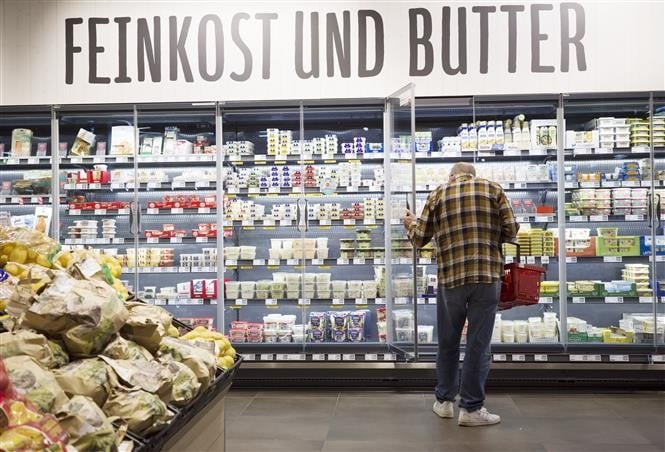 |
| Consumers shop for goods at a supermarket in Berlin, Germany, November 8, 2023. (Source: THX) |
Japanese and Korean Economy
* Japan's NHK newspaper on November 18 cited data from the Chinese Customs Administration showing that the value of seafood imports from Japan in October 2023 decreased by 99% compared to the same period last year, at only 2.4 million yuan (about 334,000 USD).
As a result, China's seafood imports from Japan have plummeted in recent months, falling 67% in August and more than 90% in September, respectively, compared to the same period last year.
* The South Korean Ministry of Finance has just announced that it will reduce taxes on 76 industrial and food products by 2024 to enhance the competitiveness of industries and curb inflation.
The planned tariff reduction through tariff rate quotas is part of the country's flexible tariff system, in which the government temporarily adjusts base tariffs on imported goods to stabilize prices and protect local producers, among other goals.
Among the products with reduced tariffs, 19 are products from new industries and 18 items related to the automotive, steel and chemical sectors. In addition, there are products in the agricultural sector, other “vulnerable” industries and food, including cereal feed, urea, chicken, sugar and coffee.
* The Korea Customs Service said that the country's instant noodle exports in the period from January to October 2023 reached a total value of 785.2 million USD, up 24.7% over the same period last year, officially surpassing the 1,000 billion won (about 776 million USD) mark. 2023 also marks the 60th anniversary of the first Korean instant noodle package produced in 1963.
If the won/dollar exchange rate of 1,300 won is applied to instant noodle exports in the January-October 2023 period, the figure will reach 1,020.8 billion won, marking the first time that Korea's instant noodle exports have exceeded 1,000 billion won. For the whole year, it is estimated that Korea's instant noodle exports will reach 1,200 billion won to 1,300 billion won.
ASEAN Economy and Emerging Economies
* The central banks of Indonesia and Singapore launched a cross-border payment service using quick response (QR) codes on November 17, as part of the region's efforts to increase connectivity.
This initiative is a follow-up to ASEAN member countries’ commitment to Regional Payments Connectivity Cooperation (RPC) and the implementation of the Indonesia Payment System Master Plan 2025 to realize a more convenient and efficient payment method for the community.
* On November 17, the Lao Ministry of Information and Communications held a press conference to inform about the time of the Lao Digital Week 2024. This is considered an important event in the country's digital modernization transformation.
Accordingly, Laos Digital Week 2024 will be held from January 10-14, 2024, in the capital Vientiane with the theme: "Digital transformation towards greater socio-economic development and flexible connectivity".
Within the framework of the Week, there will be an exhibition on information technology, telecommunications and innovation of domestic and foreign start-up businesses, with more than 100 booths.
* Thai Trade Representative Nalinee Taveesin said on November 20 that negotiations are underway for the Korean Ministry of Trade, Industry and Energy to sign an Economic Partnership Agreement (EPA ) with Thailand.
The Korean government is interested in the EPA because neither country has plans to designate a free trade area. However, both have agreed on regional cooperation, namely the ASEAN-Korea Free Trade Agreement (AKFTA) and the wide-ranging Regional Comprehensive Economic Partnership (RCEP).
Success in the EPA deal would help cut import tariffs and further reduce trade barriers.
* On November 22, Malaysian Minister of Investment, Trade and Industry Tengku Zafrul Abdul Aziz said that ASEAN's electric vehicle (EV) market is estimated to reach 2.7 billion USD by 2027, up more than 5 times from 500 million USD in 2021.
Mr Zaful said Malaysia has many competitive advantages to attract more high-value investments thanks to the development of a comprehensive ecosystem for the EV industry and next-generation vehicles. The country's target is to have electric and hybrid vehicles account for 20% of new car sales by 2030, 50% by 2040 and 80% by 2050.
Source








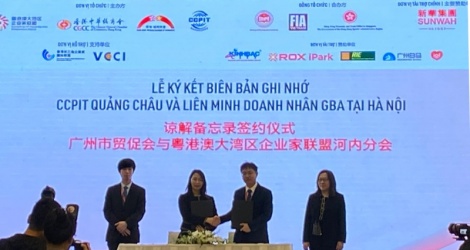

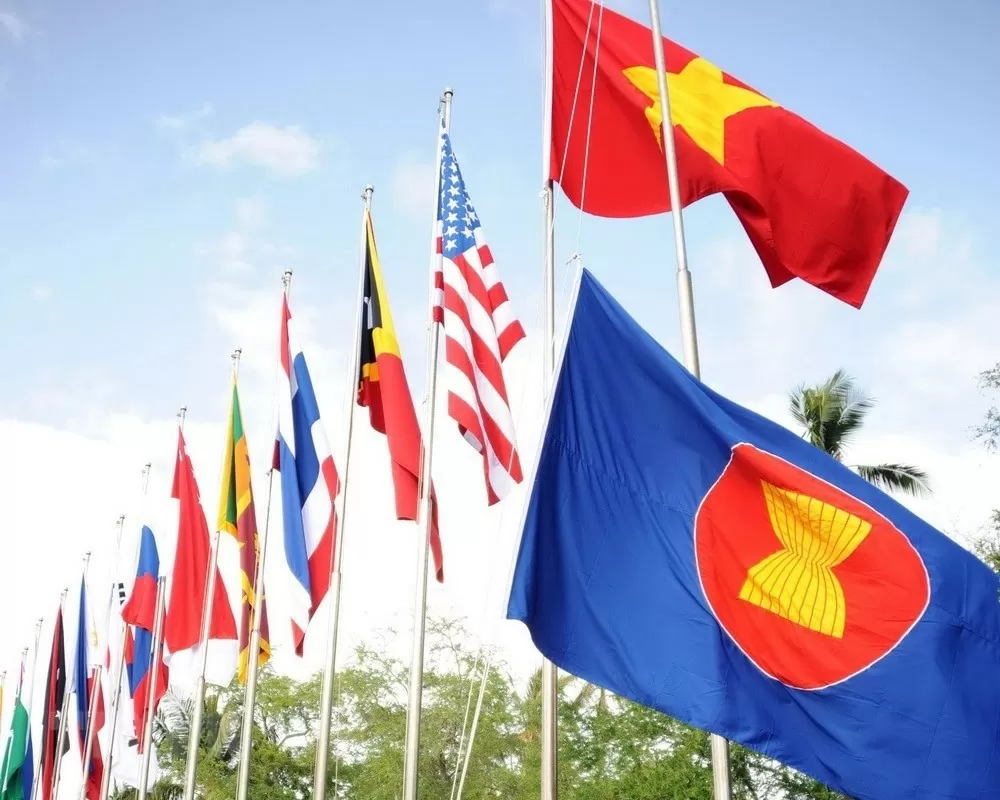

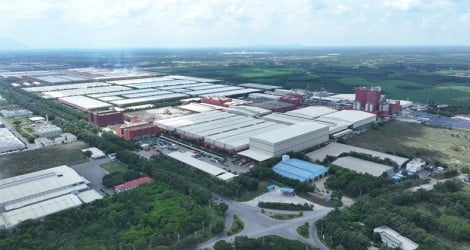

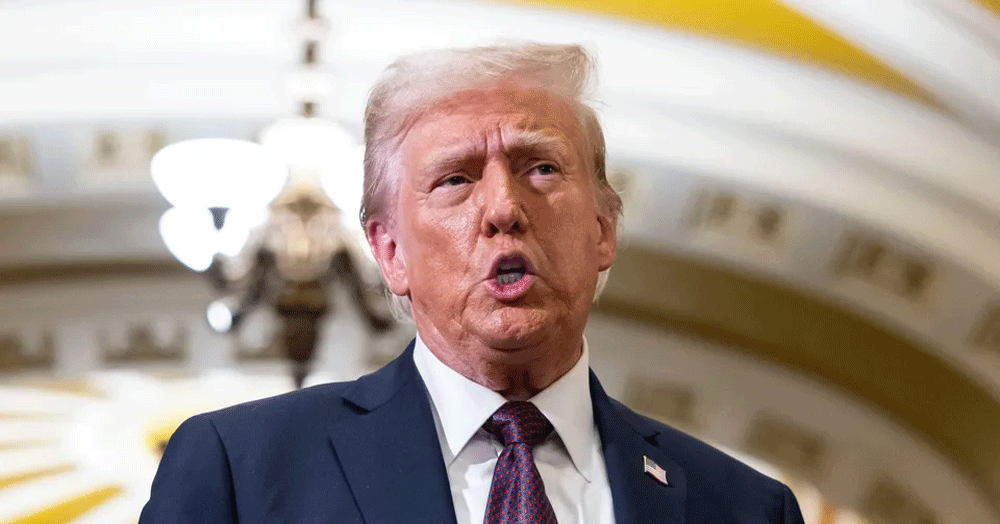

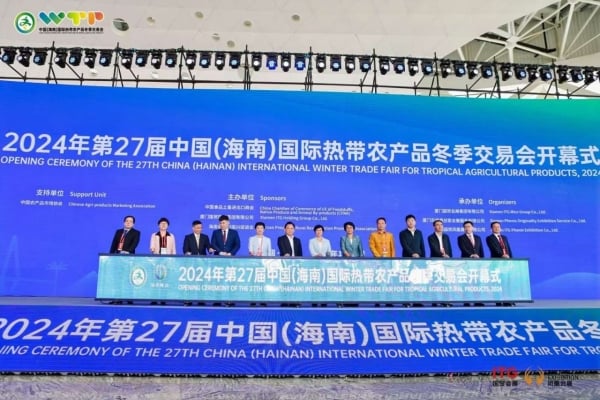


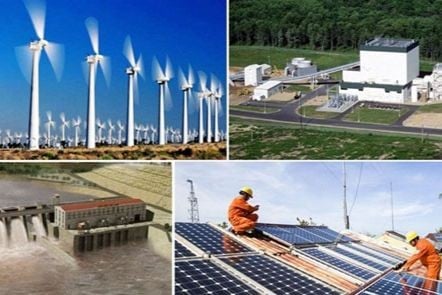

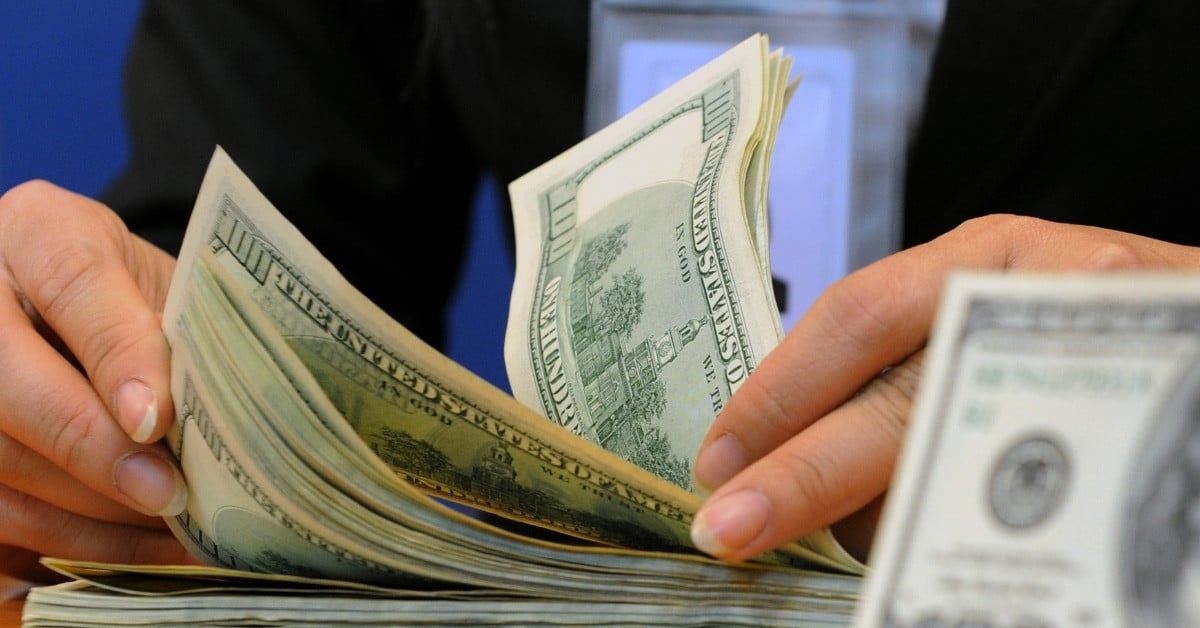



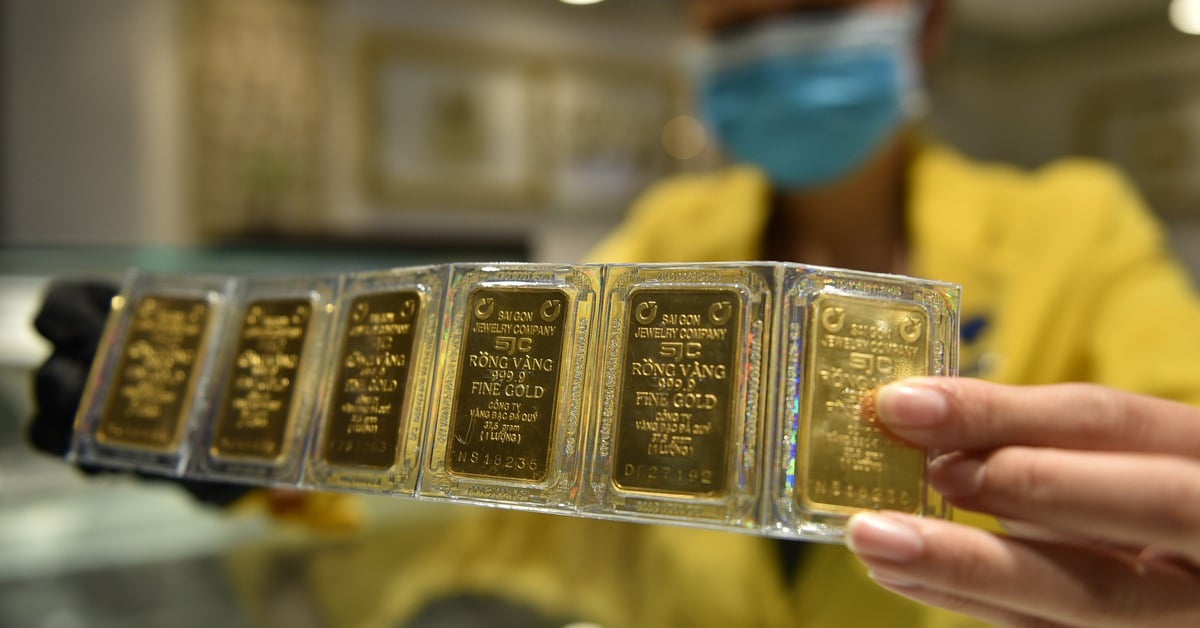





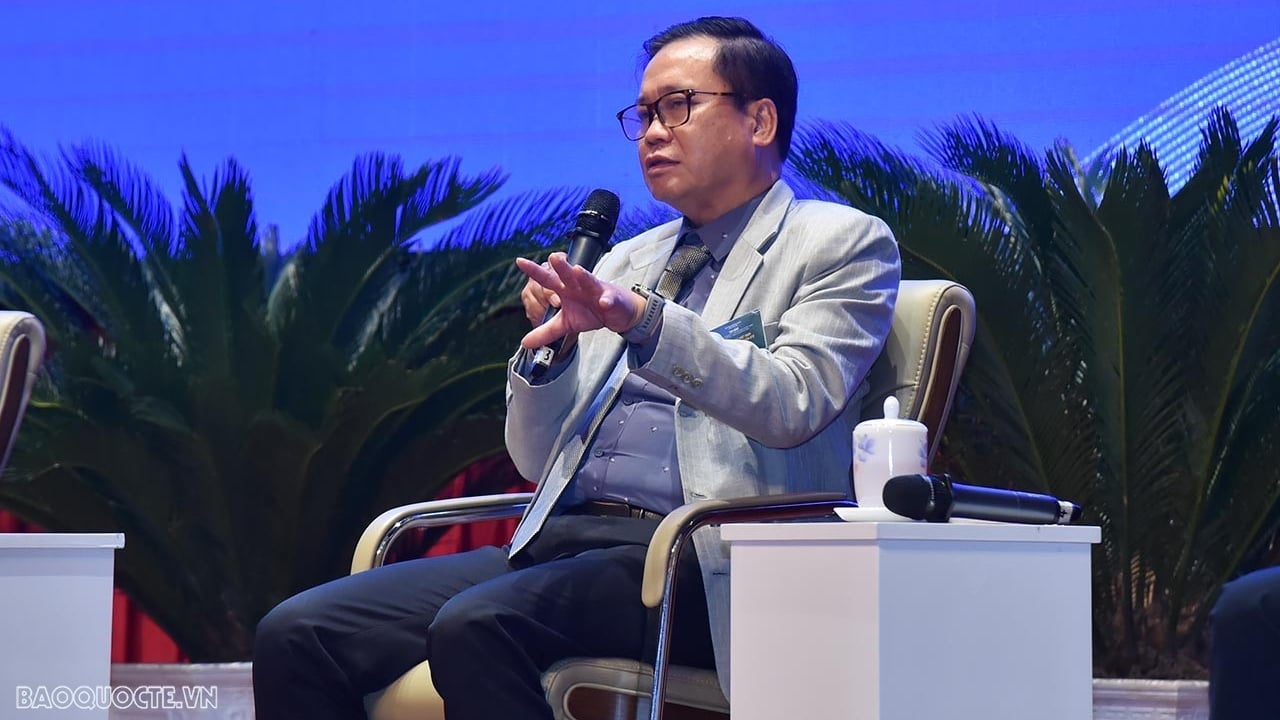

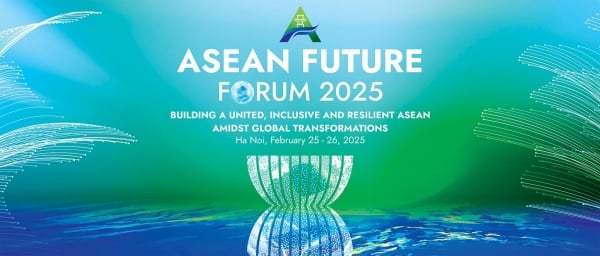







![[Photo] Prime Minister Pham Minh Chinh chairs Government Conference with localities on economic growth](https://vstatic.vietnam.vn/vietnam/resource/IMAGE/2025/2/21/f34583484f2643a2a2b72168a0d64baa)



























































Comment (0)